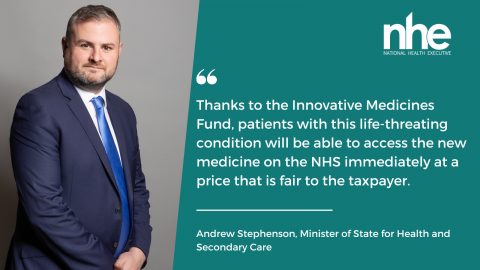Patients with a rare heart condition are set to benefit from a landmark approval for a new drug that can significantly reduce risk of both hospitalisation and death, NHS England (NHSE) has announced.
The treatment, known as tafamidis, is the first ever approved treatment for a cohort of patients in England with transthyretin amyloidosis cardiomyopathy (ATTR-CM), which sees clumps of protein build up in the heart, risking heart failure and mortality.
The news comes after the National Institute for Health and Care Excellence gave the treatment the green light in final draft guidance.
Final guidance is expected next month, but tafamidis will be available immediately to NHS patients through the Innovative Medicines Fund, until routine availability is confirmed.
Clinical trials showed that the treatment – which is sold by Pfizer under the name, Vyndaqel – reduced the risk of death in patients by 41% compared to a placebo, with fewer hospitalisations also observed.
The Scottish Medicines Consortium accepted the drug for use within NHS Scotland on adult ATTR-CM patients in November 2023. In England, approximately 1,500 have been diagnosed with ATTR-CM.

”A first of its kind, tafamidis will give those living with this rare progressive condition new hope,” said NHSE’s national clinical director for heart disease, Professor Simon Ray.
He added: “This pioneering drug is just one example of the NHS delivering on its commitment to ensure patients across the country have access to the latest and most effective treatments to help significantly improve their quality of life.”
Tafamidis works by slowing the build-up of dangerous protein deposits and is taken once a day as a capsule.
Previous treatment options in this area have been limited and primarily focused on symptom management and supportive care.
Joel Rose, CEO at Cardiomyopathy UK, explained: “ATTR-CM has significant impacts on an individual’s everyday life and we are really pleased there is now a treatment option which could help improve their care.
“We now must make sure that this treatment can get to those who will benefit as quickly as possible as ATTR-CM often worsens over time.”
To learn more about the latest innovations coming from clinical trials and the pharmaceutical industry, register for National Health Executive’s life sciences online conference later this year.
Image credit: iStock



















